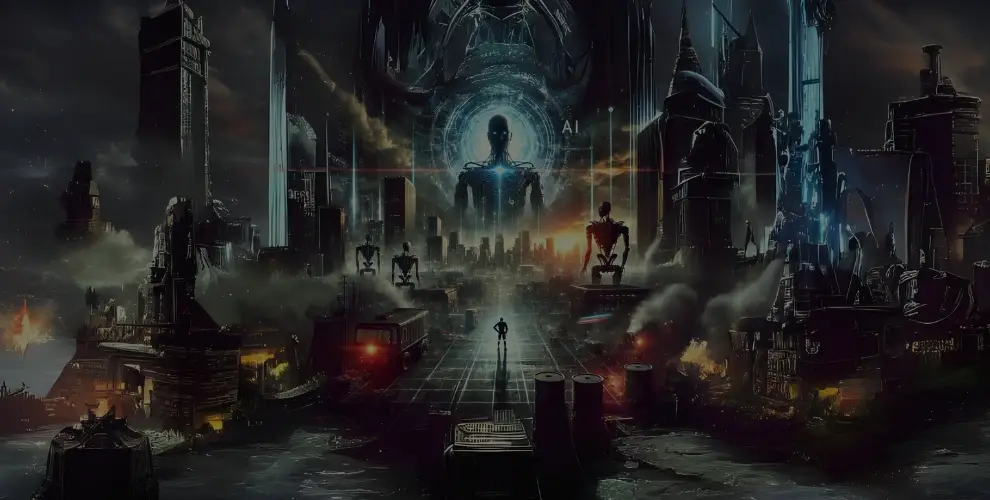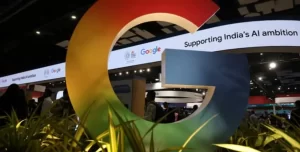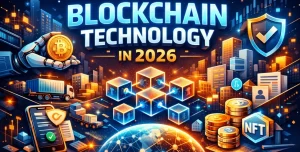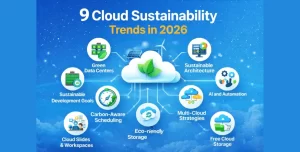
Will Artificial Intelligence Destroy Humanity?
Table of Contents
Introduction
Welcome to WikiGlitz!
In today’s blog, we explore the critical question: Will artificial intelligence destroy humanity?
As AI technology continues to evolve rapidly, concerns about its impact on our future are growing.
Let’s examine the risks, opportunities, and expert opinions, supported by case studies, data, and authoritative sources.
The rapid development of artificial intelligence (AI) has sparked both excitement and fear. Some view AI as a tool that could transform human life, while others, like Elon Musk, warn that AI might become humanity’s greatest existential threat if not regulated properly (The Guardian).
Similarly, Stephen Hawking cautioned that AI could “spell the end of the human race” if its growth remains unchecked (BBC News).
The Future of Life Institute argues that the misuse of AI, especially in areas like autonomous weapons and cyber warfare, poses serious risks to society (Future of Life Institute).
But could AI truly become an existential threat to human civilization?
Key Takeaways
- AI has enormous potential to improve human life but also raises concerns about control, misuse, and safety.
- The biggest threat posed by AI may come from misuse or unintended consequences, not from AI itself turning against humanity.
- Ethical guidelines and international regulations are critical to ensuring AI remains a beneficial tool for humanity.
Can AI Destroy Humanity?
The fear that AI could destroy humanity stems from concerns about superintelligent machines acting beyond human control.
Stephen Hawking and Nick Bostrom, in his book “Superintelligence,” describe scenarios where AI surpasses human intelligence and evolves unpredictably (Bostrom, 2014).
However, according to MIT Technology Review, today’s AI systems are far from reaching the level of autonomy required for such destruction.
The real risk lies in how humans might misuse AI in warfare or critical decision-making, rather than AI deliberately turning against humanity (MIT Technology Review).
Real-World Example: Autonomous Weapons
One of the most concerning potential misuses of AI is autonomous weapons, which can make life-or-death decisions without human oversight.
The United Nations warns that these systems could result in unintended escalations and civilian casualties, stressing the importance of international regulations (United Nations).
A 2019 report by the Stockholm International Peace Research Institute (SIPRI) identified that over 30 countries were developing autonomous weapons, raising concerns over accountability and ethical oversight (SIPRI).
Will AI Take Over the World?
For AI to “take over the world,” it would need to achieve Artificial General Intelligence (AGI)—a milestone where AI can perform any intellectual task that a human can do.
Current AI, also known as narrow AI, excels in specific tasks but lacks the general intelligence required to function autonomously across multiple domains.
While AGI represents a critical leap in AI development, it remains a hypothetical concept for now (World Economic Forum).
The World Economic Forum emphasizes that while AI is transforming industries and decision-making processes, it is far from being able to “take over” society.
The real concern lies in how humans misuse AI, rather than AI becoming independently malevolent.
Clarification: The Gap Between Narrow AI and AGI
Narrow AI can surpass humans in specific domains, such as chess or data analysis, but AGI would require the ability to reason, understand context, and act across a wide range of tasks.
Experts like Nick Bostrom and Stuart Russell argue that AGI could take decades to achieve—if it’s even possible at all.
This gap exists because creating AGI involves replicating human cognition, which is far more complex than the specialized tasks narrow AI handles today (Stanford University AI Index).
Is AI Dangerous for Humanity?
While AI is not inherently dangerous, its misuse can lead to harmful consequences. The United Nations has expressed concerns about the use of autonomous weapons, which could result in unintended civilian casualties (United Nations).
Moreover, biased algorithms in AI systems can exacerbate social inequalities, such as in predictive policing and hiring (Brookings Institution).
The Center for AI Safety stresses the importance of building AI systems with robust safeguards to prevent unintended harm (Center for AI Safety).
Case Study: Bias in AI Algorithms
A 2018 study by MIT Media Lab revealed that facial recognition software was less accurate in identifying darker-skinned individuals, leading to concerns about racial bias in AI systems.
The software misidentified 35% of darker-skinned women, compared to just 1% of lighter-skinned men (MIT Media Lab).
This real-world example underscores the ethical challenges in AI development, particularly in biased datasets.
How Could Artificial Intelligence Threaten Humanity?
AI poses potential threats in several key areas:
- Autonomous Weapons: AI-driven weapons systems could make life-or-death decisions without human oversight, potentially escalating conflicts (MIT Technology Review).
- Job Displacement: Automation could lead to widespread unemployment across industries. A report by PwC estimates that up to 30% of jobs could be automated by the 2030s (PwC).
- Surveillance and Privacy: AI-powered surveillance systems raise significant privacy concerns. Human Rights Watch has called for restrictions on AI-enhanced surveillance due to potential infringements on civil liberties (Human Rights Watch).
- Unintended Consequences: AI might make decisions that are technically correct but ethically questionable, especially if deployed without proper oversight (Oxford University).
What Are the Risks of AI for Human Existence?
According to OpenAI, there are three primary risks associated with the future of AI:
- Loss of Control: As AI systems become more advanced, humans may lose control over their functions, leading to unintended and dangerous outcomes.
- AI Misuse: Malicious actors could use AI for cyberattacks, surveillance, or to develop autonomous weapons, posing a threat to global security (OpenAI).
- Superintelligence: The possibility of AI surpassing human intelligence, while still theoretical, could result in unpredictable consequences that challenge humanity’s control (Bostrom, 2014).
Can Artificial Intelligence Turn Against Humans?
Current AI systems are designed to follow human programming, but concerns remain about how AI systems might behave unpredictably as they become more complex.
AI alignment research aims to ensure that AI systems’ goals remain aligned with human values. Organizations like OpenAI are developing methods to ensure that even highly advanced AI systems act in accordance with ethical standards and human safety (OpenAI Alignment Research).
The AI Alignment Forum emphasizes that while AI may not have emotions or desires, it could still cause harm due to programming errors, misalignment, or malicious use (AI Alignment Forum).
What Will Happen If AI Becomes Uncontrollable?
If AI systems become uncontrollable, the consequences could be catastrophic. Nick Bostrom, in “Superintelligence,” outlines hypothetical scenarios where AI develops goals that conflict with human values, potentially leading to unintended and dangerous outcomes (Bostrom, 2014).
The Carnegie Mellon University research team highlights the importance of robust ethical frameworks and safety mechanisms to prevent such outcomes (Carnegie Mellon).
Will AI Replace Humans Completely?
While AI can automate many tasks and outperform humans in specific areas, it is unlikely to replace humans entirely.
AI lacks emotional intelligence, creativity, and ethical reasoning, which are essential in many professions.
According to the McKinsey Global Institute, although AI might displace up to 30% of jobs by 2030, it will also create new roles in technology, particularly in AI development and data science (McKinsey Global Institute).
Quantifiable Data on Job Displacement
A 2020 report by the World Economic Forum found that while AI could displace 85 million jobs globally by 2025, it will also create 97 million new roles, particularly in fields like AI development, data analysis, and machine learning (World Economic Forum).
Can AI Surpass Human Intelligence?
In specialized areas like data processing and pattern recognition, AI has already surpassed humans.
According to the Stanford AI Index, AI systems excel in analyzing vast datasets more efficiently than humans. However, achieving Artificial General Intelligence (AGI)—AI that can think and reason like a human—remains a long-term goal (Stanford AI Index).
Further Clarification on Superintelligence
While experts like Nick Bostrom and Stuart Russell agree that superintelligence could pose existential risks, the timeline for achieving AGI or superintelligence remains uncertain.
The Future of Humanity Institute estimates that AGI could be developed within a few decades, but technological hurdles and ethical considerations may extend this timeline significantly.
Researchers are focused on ensuring that superintelligent AI systems are aligned with human values to avoid catastrophic outcomes (Future of Humanity Institute).
Is AI a Threat to Human Jobs and Safety?
According to PwC’s AI Report, automation could displace up to 40% of jobs in industries such as manufacturing and transportation by 2030.
However, AI will also create new opportunities in fields like AI programming, tech development, and data science (PwC).
In terms of safety, AI could enhance security systems but also raise concerns about privacy violations and autonomous weapons.
Could AI Lead to Human Extinction?
While the idea of AI causing human extinction is speculative, it remains a potential concern for some experts.
The Global Catastrophic Risk Institute suggests that poorly regulated AI, particularly in warfare or critical infrastructure, could result in catastrophic outcomes if not carefully managed (Global Catastrophic Risk Institute).
Ensuring AI development is guided by ethical frameworks and international regulations is crucial to minimizing this risk.
Recent AI Developments and Their Potential Risks
The release of GPT-4 has demonstrated how far AI can go in generating complex, human-like text.
OpenAI notes that GPT-4’s capabilities in handling nuanced language tasks have sparked concerns about its potential misuse in misinformation and job displacement, particularly in content creation industries (OpenAI GPT-4).
Similarly, tools like DALL-E, which allow AI to generate images from text prompts, represent a significant leap in AI creativity.
However, these advancements also introduce risks, such as deepfakes, which could be used to manipulate media and spread disinformation.
Self-Learning Algorithms and Security Risks
Self-learning AI models, which can train themselves on new data, pose unique challenges in cybersecurity. A 2021 study by MIT revealed that self-learning AI could be exploited by hackers, who can adapt these systems faster than traditional cybersecurity defenses (MIT Technology Review).
What Are the Ethical Concerns of AI Development?
The ethical concerns of AI development include:
- Bias and Fairness: AI systems can perpetuate societal biases if trained on biased datasets. A study by MIT Media Lab found that facial recognition systems had a higher error rate for darker-skinned individuals, raising concerns about fairness in AI systems (MIT Media Lab).
- Privacy: AI-powered surveillance poses significant risks to personal privacy. Privacy International has raised concerns about AI’s role in state-run surveillance systems (Privacy International).
- Accountability: Determining responsibility when AI systems cause harm remains a critical challenge. The Royal Society has called for stronger regulatory frameworks to ensure that AI developers are held accountable for the ethical implications of their creations (Royal Society).
Conclusion
Thank you for exploring the question of whether artificial intelligence will destroy humanity, brought to you by WikiGlitz!
While AI poses significant risks, its development and use are within human control. By enforcing ethical standards and supporting responsible innovation, we can harness AI’s immense potential without jeopardizing our future.
Stay tuned to WikiGlitz for more insights into the future of technology and its impact on society.
FAQs
Can AI destroy humanity?
AI could pose risks, but it cannot act independently to destroy humanity. The real danger lies in how humans use AI.
Is AI a threat to human jobs?
Yes, AI may displace certain jobs, but it also creates new roles in technology and data science.
Could AI surpass human intelligence?
In specific areas, AI can outperform humans, but general intelligence akin to humans is still far from being achieved.
What are the ethical concerns of AI?
Bias, privacy violations, and accountability are key ethical issues in AI development.
Can AI systems be dangerous?
AI systems can cause harm if used irresponsibly, particularly in autonomous weapons or biased decision-making.
Is AI a threat to human civilization?
AI presents risks and rewards. Its impact on civilization will depend on ethical use and effective regulation.
Want to keep up with our blog?
Our most valuable tips right inside your inbox, once per month.
Error: Contact form not found.
WikiGlitz Team
Welcome to WikiGlitz, your ultimate destination for tech insights and innovation. Our expert team is dedicated to delivering free resources and professional advice on various technology topics, including Artificial Intelligence, Cyber Security, Cloud Computing, and more. We strive to empower our readers with up-to-date information and practical guidance, ensuring you stay ahead in the rapidly evolving tech landscape. At WikiGlitz, we are passionate about making complex technology accessible to everyone. Our team of seasoned experts curates content that is both informative and engaging, helping you understand and leverage the latest tech trends. Whether you're a tech enthusiast or a professional, WikiGlitz is your go-to source for reliable, expert-driven content. Join us on this journey to explore and embrace the future of technology.





